For example, a clothing label communicates a lot about a brand of clothes such as quality, design, functionality, image and therefore likely its’ community of buyers. Think about how you perceive someone who wears Nike, Old Navy or Forever Sixteen? For each brand we make assumptions about the person based on its label.
But what if the thing being labelled is extremely complex and sophisticated; like you! What you enjoy and don’t enjoy, what motivates you, your thinking style and communication style.
But what if the thing being labelled is extremely complex and sophisticated; like you! What you enjoy and don’t enjoy, what motivates you, your thinking style and communication style.
Can 4, 8 or even 16 ‘types’ accurately describe your uniqueness and how you’ll act in different situations?
Do you accept that you are identical to a certain percentage of the world’s population and that you fit neatly into a fixed category of type?
Labels may help us to simply classify something as functional as clothing, or as aspirational as a sporting brand, but when it comes to the complexity of us human beings something much more authentic is required.
On our journey of lifelong self-discovery, personality questionnaires can be helpful; however, there are some downsides.
Labels
For years labels have been applied to people in the workforce based on personality assessments. Theories of personality types are regularly used to put people in ‘boxes’. And if you’ve ever wanted to move out of your ‘box’ you know just how hard that can be.
Indicating Limitations
Being labelled through a personality assessment can easily condition us; this is who you are and that’s it. Great if it plays to your top strength, but what about the other strengths you may have that are ignored?
Consider a colleague of mine who, at an early stage in his career, was put into a ‘box’ and labelled as ‘an analytical personality type‘. He became conditioned and limited in his personal development. The ‘personality type’ recognized his one strength and he played to it, but years later he uncovered more strengths and that opened him to new possibilities. He could have been far more productive and perhaps more successful in his career had he not been limited by a single, fixed label.

Theory
All our behaviors are brain driven. Despite the tremendous similarity of our brains, we all act differently, have unique abilities, and distinct preferences, desires, dreams, hopes and fears. Simply put, our unique behaviors come from our brains; extremely complex organs that marshal their billions of nerve cells for us alone.
The commonly used personality assessments provide some insight; however, there is little science behind them. Some are cleverly worded so simple classifications can be interpreted as ‘just like me’. In fact, subscribing to the view that we are each fixed suggests that all learning and development is wasted. If we are fixed, then how do we develop? For the last two decades neuroscience has rapidly expanded our knowledge of how and why people behave as we do.
All our behaviors are brain driven. Despite the tremendous similarity of our brains, we all act differently, have unique abilities, and distinct preferences, desires, dreams, hopes and fears. Simply put, our unique behaviors come from our brains; extremely complex organs that marshal their billions of nerve cells for us alone.
We all have our own perception of the world and how we respond to it. These recurring responses, part inherited, and part learned, fall into patterns or behavior preferences (note the plural, we each have a range of preferences). Our behaviors change with our circumstances; we adapt behavior to one degree or another based on the situation we find ourselves in.
Traditional personality assessments are interesting and often spark thoughts and conversations to progress self- awareness which is a good thing. However, they show only one view of us. We are now able to reveal a more complex picture of who we are and how we behave, using the latest neuroscience, without being limited by any labels. What was once intangible and is now tangible.
We can use this knowledge about our behavior preferences to forge greater success in all that we do. Feel free to carry labels with you; your cell phone, laptop, and favourite social media and yes, your clothes if you wish, but don’t let anyone apply a label to you.

